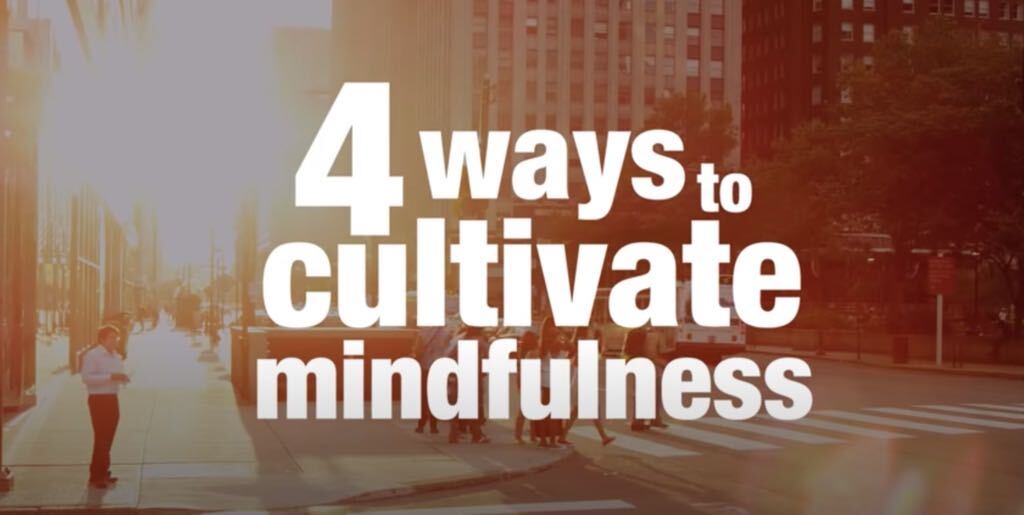Ever feel like you’re on auto pilot? Or go into a room to get something and then immediately forget what that was? Mindfulness, or mindful awareness, is at the heart of Whole Health and can help you to be more present in the here and now to live your life more fully, with all its joys and sorrows, successes and challenges. In general, mindful awareness may:
- Improve your quality of life, helping you experience more moments of your life.
- Help you see things as they are, so that you can observe—but not judge—your experiences.
Mindfulness is an intentional and non-judgmental awareness of the present moment. It is a type of meditation based on the concept of being mindful, or having increased awareness, of the present. It may include formal meditation practices such as focusing on the breath or sensations in the body, and informal practices such as washing the dishes. These practices are intended to cultivate awareness of the present moment with a quality of acceptance and kindness.
Mindfulness Based Interventions, on the other hand, are structured mindfulness classes that include instruction in a sequence of specific mindfulness practices, group discussions, exercises and theory.
Studies show that practicing mindful awareness can support our overall health, pain management, stress management, reduction of inflammation, and more.
Jon Kabat-Zinn, the creator of the Stress Reduction Clinic and the Center for Mindfulness in Medicine, Health Care, and Society, describes it best as “Mindfulness means paying attention in a particular way: on purpose, in the present moment and non-judgmentally.”
So now you may be wondering, “Where do I start?” or “How do I practice mindfulness or mindful awareness?”
You can start informally with simple activities in your daily life, such as stopping to notice how you feel physical and mentally. Perhaps pay attention to the smell or taste of food as you are cooking or eating, or stop to notice the birds chirping, or the feeling of the breeze against your skin. It’s helpful to approach this with curiosity and a beginners mind. You can also use mindful awareness to help explore what really matters to you.
In this brief video, Christiane Wolf, MD, Ph.D., and Greg Serpa, Ph.D. (from Greater Los Angeles VA HCS), talk about four ways to cultivate mindfulness. The tactics they review to help achieve mindfulness include:
- Grounding
- The S.T.O.P. acronym (Stop, Take a breath, Observe, Proceed)
- Anchor phrases
- The 3 P’s (Pause, become Present, Proceed)
More information
For more information on Mindful Awareness visit: https://www.va.gov/WHOLEHEALTH/circle-of-health/mindful-awareness.asp
The National Center for Health Promotion and Disease Prevention Healthy Living Message Manage Stress webpage includes additional mindfulness meditation recordings and other tools for managing and reducing stress such as the Manage Stress Workbook: https://www.prevention.va.gov/Healthy_Living/Manage_Stress.asp
Looking for additional health information? Check out the Veterans Health Library: https://www.veteranshealthlibrary.va.gov/
Alison M. Whitehead, MPH is the Acting Director for the Integrative Health Coordinating Center in the VHA Office of Patient Centered Care and Cultural Transformation.
Topics in this story
More Stories
Nutrition plays an important role in our overall health. Telehealth resources can help you set and achieve your healthy eating goals.
Veterans learn to combine mindfulness with the challenge of climbing.
The program provides physical rehabilitation through telehealth, improving and sustaining physical function for older Veterans.





